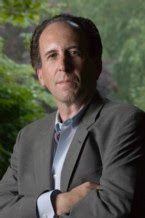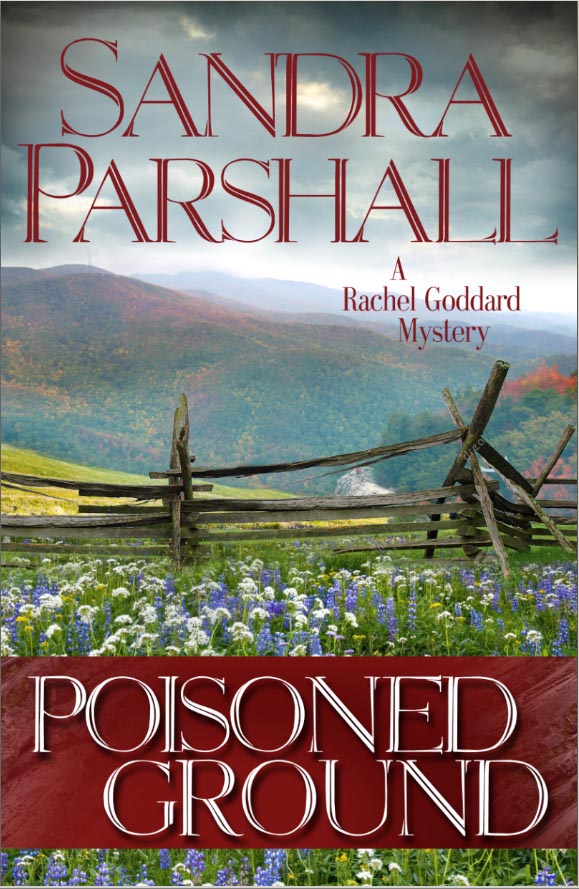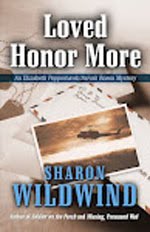
In Ken Isaacson's first novel, Silent Counsel, a child is killed by a driver who invokes attorney-client privilege to prevent his lawyer from revealing his identity until a satisfactory plea agreement is reached. The prosecutor refuses to deal and the child’s mother turns her wrath on the defense lawyer as she tries to discover who killed her little boy. Kirkus Reviews called Silent Counsel, which was inspired by a real case, “a complex story [with a] heart-pounding climax.” Ken has practiced law for 25 years, first as a member of a major Wall Street firm and now as in-house general counsel to an international transportation company. He lives in New Jersey with his wife, dog, and four cats.
SP: Why did you decide to write about a mother who lost a child, rather than a father? Do you think the story would be very different with a male character?
KI: Wow…no one’s ever asked me that before. And now that I think about it, I can’t say that I ever made a decision to write about a mother rather than a father—it never occurred to me that the story would be anything other than from the mother’s point of view.
I think the story would have a different feel if it had been done otherwise. In Silent Counsel, Ben’s parents, Stacy and Marc, drift apart following their son’s death, mainly because they have different ways of coping with the terrible hit-and-run that tore their lives apart. Stacy becomes obsessed with finding the person responsible, while Marc is determined to grieve in his own way, but then try to move on. And Stacy wonders whether a father could ever understand the depth of the biological bond between mother and child that makes his solution impossible for her to accept. I think it’s that bond that drives the story, and if it were told from the father’s point of view, that element would be missing.
Of course, that’s not to diminish the loss suffered by a father in such a situation. I can tell you that when I first conceived the story, my oldest son was about six years old (the age of Ben Altman in Silent Counsel), and writing about losing a child was certainly an emotional experience.

SP: On the same subject, a perennial question on writers’ listservs is whether men and women can write convincingly from the POV of the opposite gender. Were you completely comfortable writing about a woman’s experiences, or did you ask your wife or other female readers for their opinions and insights?
KI: I’ve watched some of those threads online, most recently on DorothyL, and was amused by some of the perceived telltales that expose men writing women or vice versa.
For my part—and probably because I didn’t know any better—I did feel comfortable writing from Stacy’s POV. Again, I had small children of my own, and it was easy to find much of the emotion within myself. But my wife was my early reader, and I did rely on her to let me know if things rang true or not—not only with Stacy’s POV, but with the story in general. And there are a number of changes that I made as a result of her insight—the most significant of which was to re-write the whole dang story from the ground up. Initially, the focal character was the mother, Stacy, with the attorney, Scott Heller, playing a more or less supporting role. Without giving too much of the story away, Sylvia felt that Stacy didn’t make a terribly sympathetic character to be cast in the main spotlight. So I went back to page one, and re-wrote the entire story, shifting the focus to Scott, the lawyer. (Can you believe it? A lawyer as a sympathetic character! Go know.)
Of course, my wife enjoys pointing out that I seemed to accept her suggestions only after one or two other early readers made the same observations. “Oh, you were waiting for someone else to tell you that too?”
Ah, well. Isn’t that how men and women communicate?
SP: A lot of people don’t realize how specialized the practice of law is – they figure every lawyer knows everything about all aspects of law. Were you, as a civil attorney, well-versed in criminal law when you began writing this book, or did you have to brush up on some points?
KI: You’re right. The practice of law is extremely specialized. I’m not particularly well-versed in criminal law at all—I took the required introductory course in my first year of law school, which was quite some time ago, and really haven’t had any exposure to it during my career.
But so much of the law is always evolving and is ever-changing—even the narrow areas that individual lawyers carve out as their specialties. So even if I were to have written a story revolving around my own specialty (uh, if you give me a few minutes, I’ll be able to figure out what that specialty is…) I’d have had to do some legal research.
That’s the thing about the practice of law. You don’t really learn “everything there is to know” about a particular subject. You learn the questions to ask, and where to look for the answers. It’s a constant game of “what if,” which makes it a great background for novel writing.
Did I have to do some brushing up on the legal issues found in Silent Counsel? Yes, I did. For example, I didn’t have a clue about the distinction between manslaughter and aggravated manslaughter, or what the range of penalties for each was. I didn’t know how a county prosecutor’s office was structured, or how cases were assigned to individual assistant prosecutors. And I had to do quite a bit of research into the intricacies of the attorney-client privilege. The list of what I didn’t know is actually pretty long.
One of the things I’ve come to learn is that experts are quite willing to share their knowledge if you simply admit to them (1) you don’t know jack, and (2) you appreciate the opportunity to learn from them.
SP: More and more writers are being published for the first time in middle age (or older). Do you think you’re a better writer now than you would have been at 25 or 30? What do you bring to your writing now that you would have been lacking when you were younger?
KI: Middle age, huh? [sighs] I suppose you’re right.
I guess age has given me an advantage that I lacked in earlier years. For one thing, I’ve certainly read a lot more now than I had by the time I was in my 20s, so I feel I have a better sense of what works and what doesn’t, from a readers perspective. Things like pacing, rhythm, switching POV, and the like.
In addition, I’ve been a lawyer for almost thirty years. As a lawyer, I write for a living. Granted, it’s a different kind of writing—although a lot of cynics would say that lawyers write fiction for a living—but I have to believe that years of brief and memo writing have helped me to be able to formulate ideas and points of view and then convey them to a reader. That’s gotta count for something.
In fact, when I first sat down to begin writing Silent Counsel, I didn’t have a clue how to proceed, so I decided to approach the task as I did a legal case. I remembered an instructor in one of my continuing legal education classes advising of the importance of developing a theme for your case. “A case without a theme is just a bunch of testimony,” I’d been told. “A car crash doesn’t happen in a vacuum—it’s a tragedy that involves real people and real consequences.” Cloaking your case with a theme gives jurors a reason to stay interested and alert: “This case is not just about young Will being injured when the buckling mechanism on his infant seat came loose. It’s about the kind of corporate greed that places the cost of recalling a defective product and the benefit of saving a child’s life on opposite ends of a scale—and tips that scale against the child.” Now, with that theme in the jury’s mind, otherwise dry testimony about how this strap connects to that latch may be, if not interesting, at least a little more bearable. There’s a reason to care.
The difference I was faced with when setting out to write a novel was that in the context of a legal case, I start—necessarily—with the facts as they’re presented to me. I search for a theme that relates well to those facts and exerts the right amount of emotional pull to grab hold of the jury. Writing a novel, though, allows the reverse. When I started, the page was, of course, quite literally blank. There were no facts, only an idea: What if the attorney representing a hit-and-run driver couldn’t reveal his client’s name because the court held it was privileged information? With that premise in mind, I began constructing facts: I decided that the victim of the driver had to be a child, because readers (my jury) would care more about this arcane legal issue if the attorney-client privilege was being used to shield someone responsible for a youngster’s death.
I knew that the lawyer in my story would face a difficult ethical dilemma—needing to protect the confidences of a client while feeling that the “right” thing to do would be to help the grieving mother. Because I had never faced such a challenge, I decided my lawyer should (like me) be unaccustomed to criminal practice and protecting the rights of the guilty. I made him a corporate litigator handling a “quick referral” for a friend—just a matter of making a few phone calls to the prosecutor to see if a deal could be made. This way, in the process of writing, I could experience the doubts and misgivings of my protagonist as he did, for the first time. And, I decided that my lawyer should have a young child of his own, so the conflict he felt between duty and right would strike close to home.
From this germ of an idea, and these few basic facts, emerged competing themes: Silent Counsel would be about a lawyer’s struggle with his personal beliefs when confronted with the fundamental need for secrecy between client and attorney. It also would be about a mother’s frustration and rage at a system that places more value on a legal technicality than bringing the killer of her six-year-old boy to justice.
Once this theme was established in my mind, I began “filling in the facts.”
Like I said, when I decided to try my hand at a novel, I didn’t have a clue how to proceed, and I therefore drew on my experience as a lawyer constructing a case. I suppose that had I set out to write without having years of lawyering behind me, I would have really been lost!
SP: How has publication changed your life? Has anything about the process surprised or disappointed you?
KI: You mean like how, before Silent Counsel was published, I had no free time, and now, since publication, I really have no free time?
Seriously, the biggest—and perhaps most surprising—change for me seems to be the enormous amount of time that must go into promotion. It began in the months leading up to the release, establishing a presence on the web and planning a tour, and it continues virtually unabated three months after the launch. I’ve done about forty signings, about ten radio or TV interviews, and a number of conventions, books shows, and panel presentations, across the country.
Once the Christmas season passes, I expect that frenetic pace to slow some, but I’m learning that it sure is a lot of hard work. I always knew that things didn’t end when the book hit the shelves, but I really did not realize the amount of time and effort that would be required.
I’m certainly not complaining! I genuinely enjoy getting out there. The challenge is time management. What comes to mind is something that Stephen Covey wrote about in The Seven Habits of Highly Effective People regarding the proper “P/PC” balance—that is, the balance between production and production capability. Too much writing, without promotion, doesn’t get you very far; by the same token, too much promotion, without writing anything to promote, isn’t very good either. Achieving the right balance is the key.
SP: Were you active in MWA before you were published? How do you believe mystery organizations benefit the unpublished and newly published members?
KI: I became active in MWA well before I was published—I joined a few months after I finished the first draft of Silent Counsel. And I believe it was one of the best moves I made.
I had completed the manuscript, and I looked at the pile of paper in front of me and said, “OK. Now what?” I had absolutely no idea what to do to get it into print. Always up for a challenge, I looked around in the bookstores for newly-published legal thrillers by first-time authors, and I reached out to a number of them for guidance. Everyone I contacted was willing to share their experiences with me, and one suggested I join MWA.
I did, and I’m glad. Those of the members who are published authors run the gamut from well-known, accomplished bestsellers to midlist authors to newly-published authors struggling for name recognition. One thing they all have in common is a passion for what they do, and a willingness to help those members not yet published. (OK, that’s two things.)
Now, the road to publication is a long and tortuous one, and can be discouraging at times. I found that becoming part of the MWA community—getting to know people who’ve made it, and people who were struggling to reach the same goals as I was—was invigorating. Every time I attended an MWA event, whether it was a monthly dinner meeting, a symposium, or the annual Edgars Banquet, I found that my determination to continue on was renewed—despite any recent rejection letters I might have gotten.
So, yes, I do feel that MWA (and no doubt for the same reasons, other mystery organizations) benefit the unpublished and newly-published members. And that’s without even getting into the substance of the various programs that the organization offers!
SP: Have you had a chance yet to learn which types of promotion work best and which are a waste of time and money? Do you find My Space useful – or is it impossible to tell whether something like that benefits a writer?
KI: Ahh, retailing pioneer John Wanamaker once said, “I know that half my advertising costs are wasted. But I can never figure out which half.” No doubt the same can be said about promotional efforts.
I don’t know that I’ve come across any types of promotion that I can specifically identify as a waste. As a newly-published author, starting with zero name recognition, as far as I’m concerned, anything that gets my name out there is worthwhile—whether or not the sale of a single book can be traced to it.
I’ve done my best to create a presence on the web. I have a website (www.KenIsaacson.com), a MySpace page (www.MySpace.com/KenIsaacson), and a Crimespace page (www.Crimespace.ning.profile/KJIsaacson). I participate in online discussion groups such as DorothyL. I’ve toured, and since the beginning of September I’ve had almost fifty events, including bookstore signings, panel appearances, library discussions, and radio and TV interviews. With the exception of the bookstore signings—where there are hard numbers about sales—it’s impossible to measure the event’s success in terms of books sold. And even with bookstore signings, there are intangible benefits that go beyond the simple number of books sold.
I can only assume that my use of MySpace has been successful for me. About six months before Silent Counsel was due to be released, I established a MySpace page, as well as my website. Now, the problem with the website is that people have to actually know about it to be able to find it. And apart from my wife, my three sons, and my mother, there weren’t a whole lot of people who knew to click their way over to my website in the months before publication.
MySpace is a different story. I’m assuming you know how MySpace is structured, so suffice it to say that it’s not too difficult to develop a list of friends that are a ready audience for what you have to offer. And unlike your traditional website, which must attract traffic, if you “work” MySpace right, you can deliver your message to your audience.
Has MySpace helped sell Silent Counsel? As your question implies, it’s hard to say. I do know that in the weeks leading up to publication, Silent Counsel climbed to the number 2 spot on Amazon’s list of Hot New Releases in legal thrillers, and it’s maintained a position in the top 5 since then. The only thing I can think of attributing that pre-publication success (before I went on the road) to is a web presence, and my MySpace page was the centerpiece.
SP: What are your career goals? Do you think you’ll ever write full-time?
KI: I have a great day job. I left the private practice of law almost six years ago to become in-house general counsel to a corporation. I don’t miss my law firm days at all. For more than twenty years, I had to account for all of my time, every day, in six-minute intervals, so the billing could be done. And I had to worry about client development, finding new ones, and maintaining the existing ones. As general counsel, I have a single client, and no need to worry about billing or client development. I can just do my job. And the bonus is that because I have an office all to myself, I get to bring my dog to work with me!
I’m also a technology nut, so my office is virtually paperless—everything’s scanned into my computer, and synchronized with my laptop. So I can work from almost anywhere, which I’m often forced to because of the nature of the business. In fact, I often joke with the president of the company, telling him, “I’m not going on vacation next week…but I’ll be working from Breckenridge.” Or Long Beach Island, or wherever.
I have no present plans to give up the law. I also intend to keep on writing. I suppose if I had to guess which one I’d end up doing longer, I’d say that I’ll probably end up retiring from the law before I’ll stop writing.
SP: What advice do you have for aspiring mystery writers?
KI: The best single piece of advice I can think of is one word: WRITE!
What I mean by this is that we too often get caught up in the planning. We think of good ideas, we research, we outline…we seem to do everything except put pen to paper. I’m not suggesting that anyone skip the necessary preliminary stages (though we could have a spirited discussion about outlining, and whether and to what extent it’s necessary), but don’t become paralyzed by the initial steps. Get yourself writing!
In addition, by all means join an organization like MWA. There are groups for nearly every genre and sub-genre you can think of: mysteries, thrillers, romances, you name it. Like I said in answer to one of your other questions, surrounding yourself with driven, like-minded people is invaluable—for inspiration, for support, and for knowledge.
Finally, persevere. Whether you aspire to have your work published, or you write because you just have to write, it’s a long and often discouraging road. But keep at it, and don’t give up.










5 comments:
Sandra, great interview and Ken, congrats on SILENT COUNSEL--it sounds wonderful!
I love the idea that lawyers need themes for their cases--as a doctor, I'd often have to find a "theme", an idea to anchor the patient to, in order to explain disease processes.
Or maybe some of us are just natural storytellers, lol!
What are you working on next?
I'm looking forward to reading SILENT COUNSEL.
CJ
Sandra, thanks for this and Ken, much luck and success on SILENT COUNSEL. Love the title.
When I was in school, my English teachers were always trying to get the students to identify the theme of the books we read, but I don't think any of us understood the concept. It makes a lot more sense to me now. Whether you call it a theme or a message, the writing will probably be easier and clearer if you define, in your mind, what you're trying to get across.
Great interview, Ken and Sandy. And many thanks to Ken for being my MySpace mentor. :)
Very interesting and encouraging. Thanks for the interview, Ken and Sandra.
Post a Comment